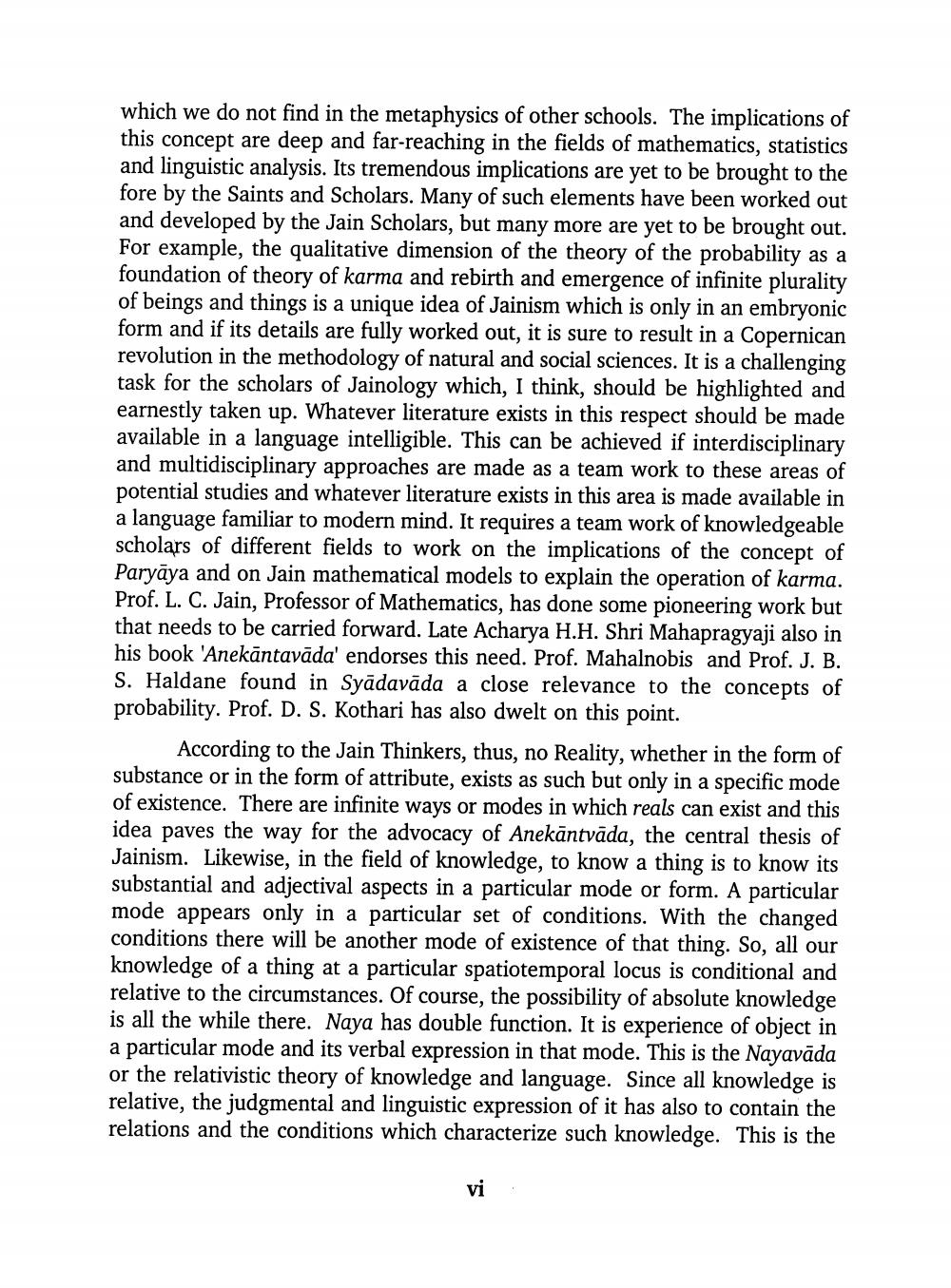Book Title: Concept of Paryaya in Jain Philosophy Author(s): S R Bhatt, Jitendra B Shah Publisher: L D Indology Ahmedabad View full book textPage 8
________________ which we do not find in the metaphysics of other schools. The implications of this concept are deep and far-reaching in the fields of mathematics, statistics and linguistic analysis. Its tremendous implications are yet to be brought to the fore by the Saints and Scholars. Many of such elements have been worked out and developed by the Jain Scholars, but many more are yet to be brought out. For example, the qualitative dimension of the theory of the probability as a foundation of theory of karma and rebirth and emergence of infinite plurality of beings and things is a unique idea of Jainism which is only in an embryonic form and if its details are fully worked out, it is sure to result in a Copernican revolution in the methodology of natural and social sciences. It is a challenging task for the scholars of Jainology which, I think, should be highlighted and earnestly taken up. Whatever literature exists in this respect should be made available in a language intelligible. This can be achieved if interdisciplinary and multidisciplinary approaches are made as a team work to these areas of potential studies and whatever literature exists in this area is made available in a language familiar to modern mind. It requires a team work of knowledgeable scholars of different fields to work on the implications of the concept of Paryaya and on Jain mathematical models to explain the operation of karma. Prof. L. C. Jain, Professor of Mathematics, has done some pioneering work but that needs to be carried forward. Late Acharya H.H. Shri Mahapragyaji also in his book 'Anekantavada' endorses this need. Prof. Mahalnobis and Prof. J. B. S. Haldane found in Syadavada a close relevance to the concepts of probability. Prof. D. S. Kothari has also dwelt on this point. According to the Jain Thinkers, thus, no Reality, whether in the form of substance or in the form of attribute, exists as such but only in a specific mode of existence. There are infinite ways or modes in which reals can exist and this idea paves the way for the advocacy of Anekantvada, the central thesis of Jainism. Likewise, in the field of knowledge, to know a thing is to know its substantial and adjectival aspects in a particular mode or form. A particular mode appears only in a particular set of conditions. With the changed conditions there will be another mode of existence of that thing. So, all our knowledge of a thing at a particular spatiotemporal locus is conditional and relative to the circumstances. Of course, the possibility of absolute knowledge is all the while there. Naya has double function. It is experience of object in a particular mode and its verbal expression in that mode. This is the Nayavada or the relativistic theory of knowledge and language. Since all knowledge is relative, the judgmental and linguistic expression of it has also to contain the relations and the conditions which characterize such knowledge. This is the vi .Page Navigation
1 ... 6 7 8 9 10 11 12 13 14 15 16 17 18 19 20 21 22 23 24 25 26 27 28 29 30 31 32 33 34 35 36 37 38 39 40 41 42 43 44 45 46 47 48 49 50 51 52 53 54 55 56 57 58 59 60 61 62 63 64 65 66 67 68 69 70 71 72 73 74 75 76 77 78 79 80 81 82 ... 134
